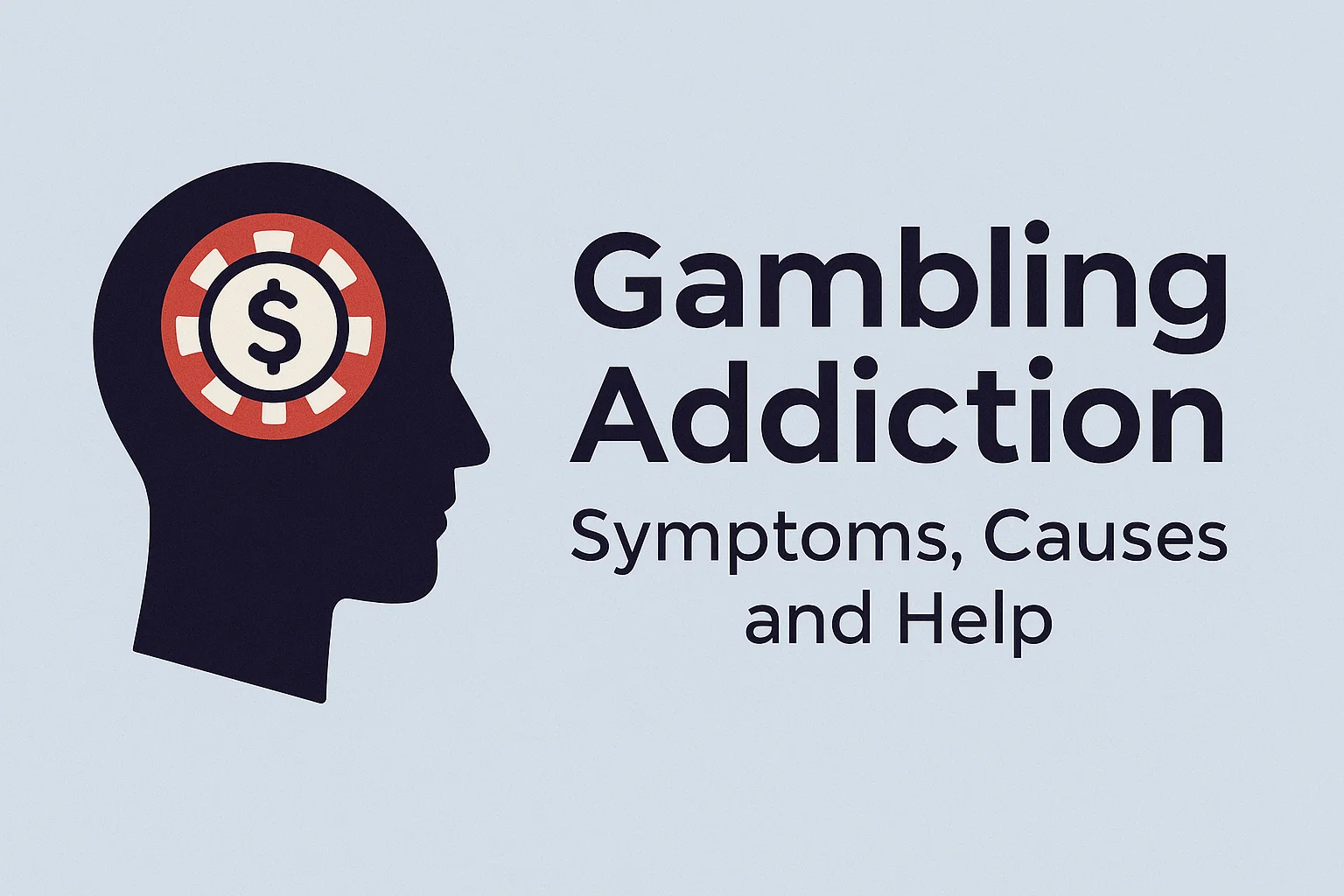-
Recensioni Poker Room
Gambling Addiction Symptoms, Causes, and Help

Is a loved one or you struggling with a gambling issue? Discover the warning signs and symptoms of compulsive gambling and where to find gambling addiction help.
What is problem gambling and gambling addiction?
Gambling issues can affect anyone from any background. Your gambling transforms from a harmless, enjoyable distraction to a serious obsession with negative consequences. Regardless of what you gamble on - sports, scratch cards, roulette, poker, or slot machines—at a casino, the track, or online, a gambling problem can lead to strained relationships, missed work, and financial disaster. You may even resort to doing things you never thought you would do, like accumulating huge debts or even stealing money to gamble.
- Gambling addiction—also known as pathological gambling, compulsive gambling or gambling disorder—is an impulse-control disorder.
- If you're a compulsive gambler, you cannot resist the temptation to gamble, despite the adverse consequences to you or your loved ones.
- You'll gamble whether you're winning or losing, broke or flush, and you'll keep gambling regardless of the fallout—even if you know the odds are against you or you cannot afford to lose.
Of course, you also may have a gambling problem even if you're not totally out of control. Problem gambling is any gambling that disrupts your life. If you're preoccupied with gambling, spending increasing amounts of time and money on it, chasing losses, or gambling despite disastrous consequences in your life, you have a gambling problem.
Gambling addiction signs and symptoms
Gambling addiction has sometimes been referred to as a "hidden illness" because there are no outward physical symptoms or signs such as there would be in drug or alcohol addiction. Problem gamblers also tend to deny or minimize the problem—even to themselves. Nevertheless, you may have a gambling problem if you:
Need to hide your gambling. You might gamble in secret or lie about how much you gamble, believing others won't understand or that you'll surprise them with a jackpot.
Have trouble controlling your gambling. Once you start gambling, can you stop? Or do you feel like you need to keep gambling until you've spent all your money, betting more and more in a bid to chase lost funds?
Gamble even when you cannot afford it. You can gamble until you have spent your very last dollar, and then you can gamble on money that you do not have—money to pay bills, credit cards, or things for your children. You may also feel the urge to borrow, sell, or even steal things for gambling funds.
Allow friends and family to worry about you. Denial strengthens problem gambling. If friends and family are worried, take them seriously. It's no shame to ask for help. The majority of older gamblers don't wish to call their adult children if they've spent their inheritance on gambling, but it's never too late to change for the better.
Causes and risk factors of compulsive gambling
As in other compulsions, problem gambling starts when you do something that triggers a burst of pleasure in your brain, such as wagering on the outcome of a football game or an online casino. Even without winning, you may get a temporary high. Over time, you may find yourself wanting more of that good feeling. But as you become tolerant of it, you need more and more gambling in order to get the same level of enjoyment. Some people are more vulnerable to a gambling addiction than others. For instance, young men between the ages of 18 and 29 are more attracted to compulsive gambling behavior. Life circumstances, such as being in financial difficulty and living alone, are also seemingly risk factors. Compulsive gambling is also more common among people whose parents have also been addicted.
Mental illness, such as bipolar disorder, schizophrenia, and substance abuse disorders, is often concomitant with gambling addiction. Pathological gambling has also been linked with some research on personality disorders, including antisocial, borderline, and narcissistic personality disorders. Aside from personality disorders, some personality traits—again, impulsivity in particular - are even risk factors for pathological gambling.
Self-help for gambling addiction
For the majority of compulsive gamblers, the most difficult thing is not to quit gambling, but to stay recovered—committing oneself to lifelong abstinence from gambling. The internet has made gambling considerably more accessible and, as a consequence, harder for recovering addicts to avoid relapse.
But recovery from problem gambling or gambling addiction can be sustained if you place yourself in the company of people to whom you're accountable, avoid places and websites that tempt you, let go of control of your finances (at least at first), and find other healthier activities to fill the void left by gambling in your life.
The following tips can help you achieve and maintain freedom from gambling addiction.
How to help someone stop gambling
If your loved one is a problem gambler, you are likely feeling many conflicting emotions.
You may have spent a lot of time and energy trying to stop your loved one from gambling or covering for them. And yet, at the same time, you may be angry with your loved one for gambling again and tired of trying to keep up the charade. Your loved one may have taken loans or even stolen money with no way of paying it back. They may have sold off family belongings or run up huge bills on joint credit cards.
